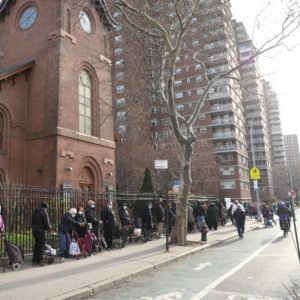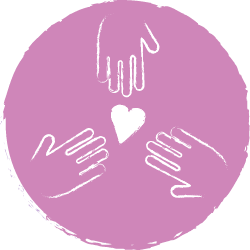As has been announced in various ways, Holy Apostles is in the preliminary stages of a multi-faceted capital project. One of our first steps has been to hire a consulting firm to assist us in creating a case for supporting the work. This process includes interviews with various “stakeholders”: staff, guests, volunteers and donors. Once the consultants hear from a wide swath of interested parties, they will weave together aspects of engagement in our common life and build materials that help us articulate the important benefits of the project.
During my interview the questions were far reaching and wide ranging. We discussed details of CHA and HASK as well as hopes and dreams for the future. At one point, my interviewer asked me about using terms like “vulnerability” and “need” when referring to our HASK guests. The point of the question was clear: such terms, even when accurate, help maintain distance between groups of people. Those designated as “in need” must be different from those who are responding to those needs—and not in a good way.
I understood what the consultant was getting at. And in the moment, I realized that the problem is not so much that we consider those who are food insecure or unhoused as vulnerable. Living without the means to survive makes people vulnerable. The problem is that we don’t universalize terms like “vulnerable” or “in need.” We don’t recognize that, rather than separating us, these words describe a shared reality of being alive.
To be human is to be vulnerable. To be human is to have needs. They may manifest differently depending on our level of economic security, but recognizing our own vulnerabilities opens a path toward responding to the needs of others. No one is immune from hurt, or loss, or fear, and no one is better than anyone else because their experiences of such realities are well hidden. Lent reminds us of these truths. Lent asks us to dismantle any false hierarchies we construct about our sisters and brothers in Christ and focus instead on our common humanity.




